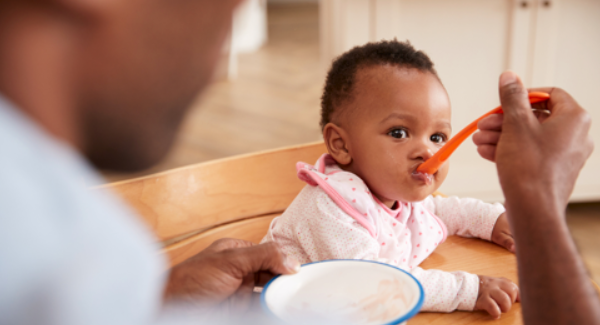
For new mothers – and pregnant women, there’s usually a niggling question on whether they are actually ‘eating for two’. “Does what I eat impact my baby?” “What should I eat more or less of?”
We had a radio show where we explored this question in detail and we’re sure someone out there will find it useful. Happy reading.
Do babies have dietary needs while in the womb?
Yes, they do.
During pregnancy, the mother’s body goes through numerous changes -physical and hormonal. Her health will be affected by the way her body is nourished during this period. A healthy, balanced diet is necessary to help ensure you and your baby stay healthy throughout the pregnancy. The food you eat is your baby’s main source of nourishment, so it’s critical to consume foods that are rich in nutrients. During pregnancy, you need to consume extra protein and calcium to meet the needs of the growing baby.
Proper nutrition can help promote your baby’s growth and development. Babies need calcium, iron, protein, Vitamin A, Vitamin B complex, minerals and nutrients.
Is the phrase “eating for two” an excuse to eat anything?
Technically, you’re actually not eating for two when pregnant so it is an excuse. However, please eat when you are hungry. Experts warn that even women who began their pregnancies at a healthy weight, or slightly overweight, could put their children at risk if they used pregnancy as a time to ditch sensible eating habits. When a woman has high blood sugar during pregnancy she is likely to pass that on to her baby which puts the child at risk of developing Diabetes.
So eat healthy instead of more.
When is the best time to introduce real food to a baby?
The recommended age is from 6 months. Some babies get exclusively breastfed for longer. Pureed meals should be introduced as a complement to breastfeeding or formula feeding not a replacement. Start of by introducing blended fruits to your baby and then you can move to food like rice or yam (pureed of course)
Feeding your baby anything but breast milk or formula too soon can increase the risk of food allergies and obesity. So wait until he/she is 6 months old before you introduce solids in pureed form. At this age her digestive system is probably ready to handle complex foods. As your baby grows, you will know what meals are preferred and also move to semi-solids from 7- 8 months old.
Remember to check in with your Paediatrician on this before you start.
So what solids can your baby try?
You can start by offering one or two spoonfuls of the following:
- Mashed cooked vegetables like carrots or potato
- Mashed fruits – banana, mango, cooked apple, pear
- Gluten-free cereal – baby rice, cornmeal, etc.
Once your baby is eating these fruits and vegetables happily, you can move on to other foods from the main groups. These include:
- Bread, rice, potatoes, and pasta
- Dairy foods
- Meat, fish, eggs, and beans
How can you get your child to eat healthy?
Start early. Start now.
Provide fruits and vegetables as snacks. Keep fruit washed, cut up and in plain sight in the refrigerator.
Serve salads more often. Teach your child what an appropriate amount of salad dressing is.
Try out vegetarian recipes for spaghetti, noodles or other foods using vegetables instead of meat.
Include at least one leafy green or yellow vegetable for vitamin A such as spinach, broccoli, cabbage, greens, or carrots each day.
Include at least one vitamin C–rich fruit or vegetable, such as oranges, grapefruit, strawberries, melon, tomato, and broccoli each day.
Remember, by choosing health-promoting foods, you can establish good nutritional habits in your child that will last for the rest of his or her life.




Way cool! Some very valid points! I appreciate you penning this write-up and the rest of the site is extremely good.